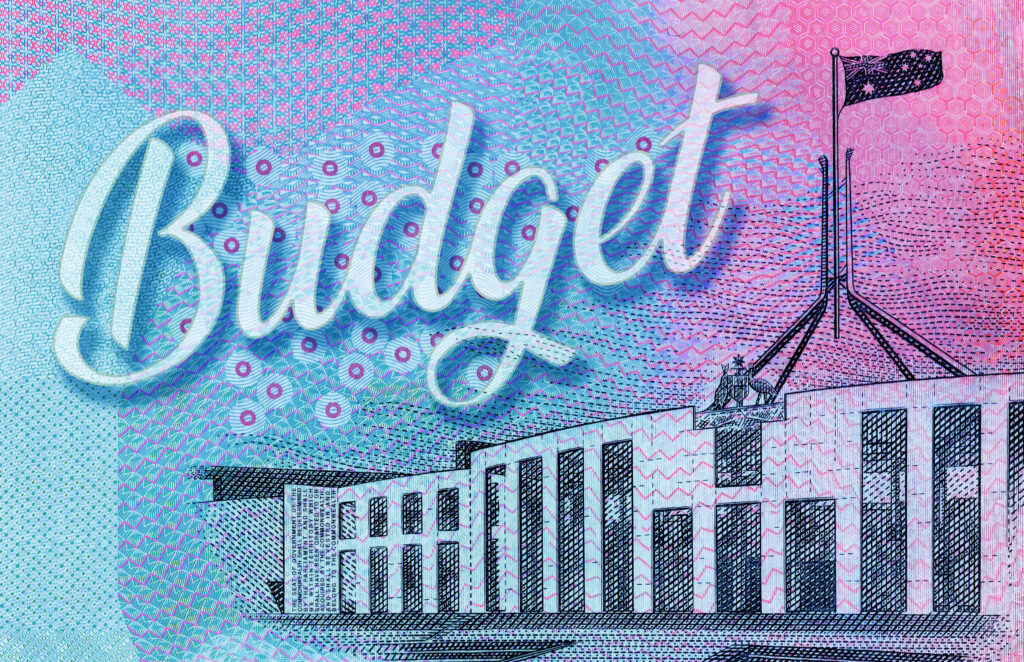Headline CPI rose more than expected, from 2.8% to 3% prompting analysts to push back forecasts for further rate cuts until November or early 2026. Core inflation fell slightly to 2.6%, edging closer to the RBA’s target band, but price pressures persist in housing and services.
GDP grew 0.6% in the June quarter, driven by a rebound in consumer spending and solid wage growth. The unemployment rate held steady at 4.2%.
Despite cautious consumer sentiment – the Westpac-Melbourne Institute Consumer Sentiment Index fell 3.1% in September – business confidence remains upbeat, particularly in retail and manufacturing.
Despite the August/September period noted for being seasonally weak, markets remain at near record levels. The ASX 200 was supported by strong performance in banking and mining stocks. US equities, meanwhile, continue to push higher off the back of the AI boom and anticipation of rate cuts.
Commodity prices and risk appetite helped the Australian dollar touch an 11- month high before easing slightly.

Market movements and review video – October 2025
Stay up to date with what’s happened in the Australian economy and markets over the past month.
Australia’s economy showed resilience in September, with inflation remaining sticky and the RBA holding rates steady at 3.6%.
Despite the August/September period noted for being seasonally weak, markets remain at near record levels.
Click the video below to view our update.
Please get in touch if you’d like assistance with your personal financial situation.

RBA Announcement – September 2025
At its latest meeting, the Reserve Bank Board announced it was keeping the cash rate on hold at 3.60 per cent.
Please click here to view the Statement by the Monetary Policy Board: Monetary Policy Decision.
We’re watching closely what the banks do with their rates, as some of Australia’s biggest lenders may make changes to their rates despite the cash rate being on hold.
Please get in touch if you would like to discuss recent rate movements or if you would like to review your finance options.

Financial missteps can mean missed opportunities
In a world of constant financial noise, from market updates and interest rate speculation to economic forecasts, it’s easy to feel overwhelmed and choose to do nothing.
But inaction can be costly when it comes to building long-term wealth. Whether it’s leaving money in cash, delaying investment decisions or ignoring the power of regular contributions, the financial consequences of sitting still can quietly erode your future goals.
Inflation is a wealth killer
One of the most overlooked risks of doing nothing is inflation. While your money might feel ‘safe’ sitting in a savings account or term deposit, its purchasing power is shrinking every year.
For example, if you’d tucked $10,000 under the mattress in 2014, ten years later in 2024 it was worth just $6926.70 in real terms, thanks to the average annual inflation rate of 2.7 per cent. That’s a 30.7 per cent loss in value without spending a cent.i
Even in low-inflation environments, the real return on cash is often negative once you factor in tax and inflation.
The ‘cost’ of cash
Holding too much cash for too long can be a drag on your portfolio’s performance. While cash plays an important role, it’s not designed for long-term growth.
Consider this:
-
Over the past 30 years, Australian shares have returned an average of 9.3 per cent per year, while cash has returned 4.1 per cent annually.ii
-
That difference compounds significantly over time. Based on those rates, $100,000 invested in shares could grow to approximately $1.4 million in 30 years, while the same amount in cash might only reach around $330,000.
By staying in cash, investors miss out on the growth potential of other asset classes.
The perils of ‘set and forget’
Many investors start out with good intentions. They set up a portfolio, make an initial contribution and then leave it untouched for years.
While long-term investing is a sound strategy, neglecting your portfolio entirely can lead to missed opportunities.
Here’s what you need to be aware of:
-
Asset allocation changes – Market movements over time can affect your portfolio’s intended risk profile.
-
Dividends – If dividends are paid out and not reinvested, you lose the benefit of the compounding effect.
-
Changing goals – Your financial needs are likely to change as you age, but your portfolio won’t reflect that it’s unless reviewed.
Annual check-ups can help ensure your investments are still working for you.
Missed opportunities
Compound interest is one of the most powerful tools in wealth creation. But compounding works best if you’re consistently contributing and reinvesting.
Consider two hypothetical investors who both invest $10,000 earning an average 7 per cent per annum:
-
Investor A contributes an extra $5,000 each year
-
Investor B contributes nothing after the initial $10,000 investment
After 30 years (and not accounting for fees and other costs):
-
Investor A may end up with more than $500,000
-
Investor B may end up with around $76,000
The difference? Regular contributions and the magic of compounding.
You can do your own calculations with ASIC’s MoneySmart calculator.
From passive wealth to active growth
The cost of doing nothing can be even more pronounced for high-net-worth investors. With larger sums at play, the opportunity cost of holding excess cash or delaying strategic investment decisions can translate into millions of dollars in missed growth over time.
While capital preservation is important, so is capital productivity. Allocating funds across diversified asset classes can help balance risk while enhancing long-term returns.
Inaction, especially in times of market uncertainty, may feel prudent, but it often results in underutilised capital that fails to keep pace with inflation or evolving financial goals.
After all, your financial plan should evolve with you. A portfolio designed five years ago may no longer suit your goals, risk tolerance or tax situation. Life changes – marriage, children, career shifts, retirement planning – and your investments should reflect those changes.
The bottom line
Doing nothing might feel safe but it’s often the riskiest choice of all. Inflation erodes your savings; cash underperforms over time and missed opportunities can delay or derail your financial goals.
By taking small, consistent steps such as contributing regularly, reinvesting earnings and reviewing your plan regularly, you can build a strong foundation for long-term financial success.
We’re here to help you take control and make your money work harder for your future.




